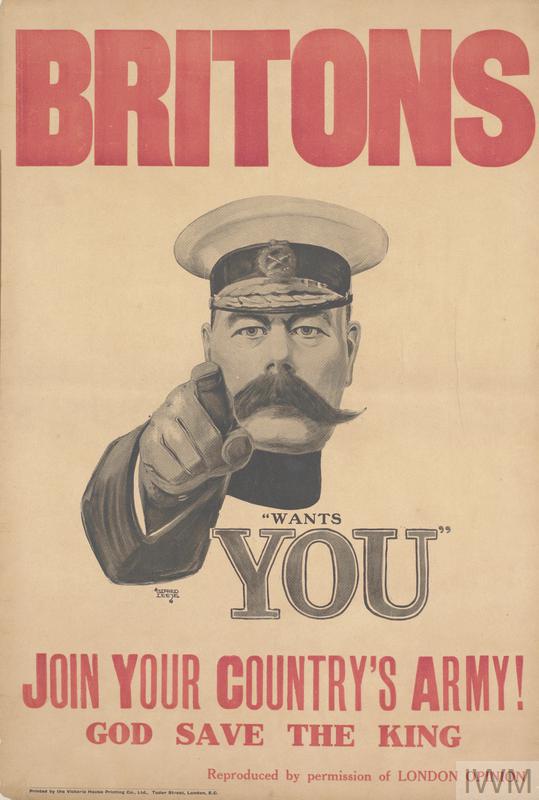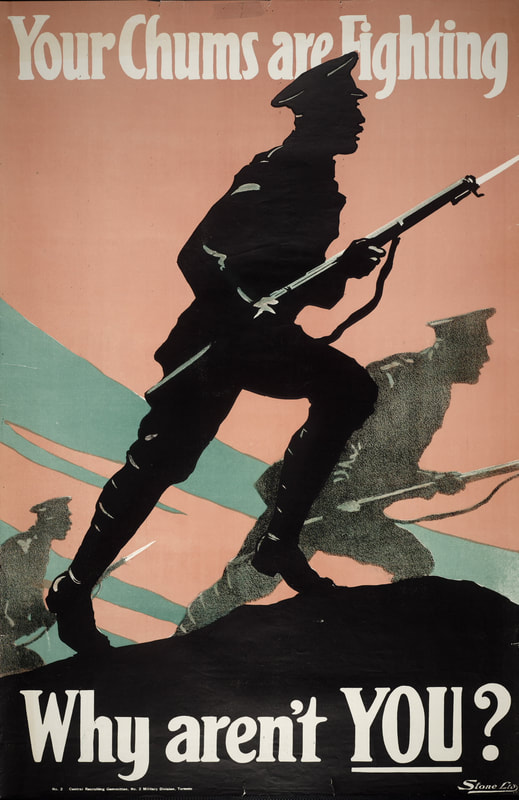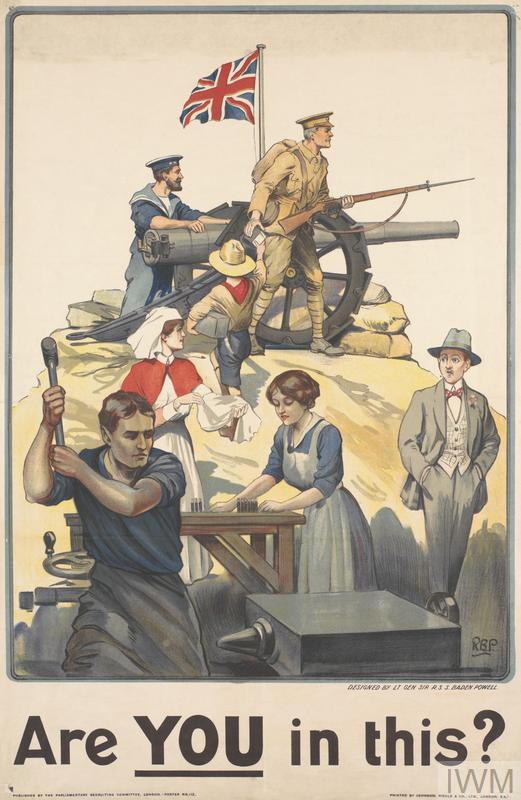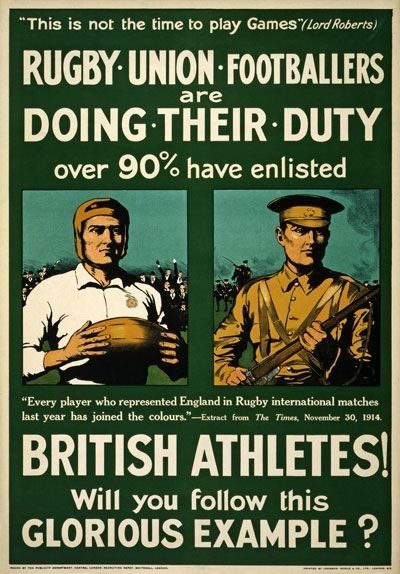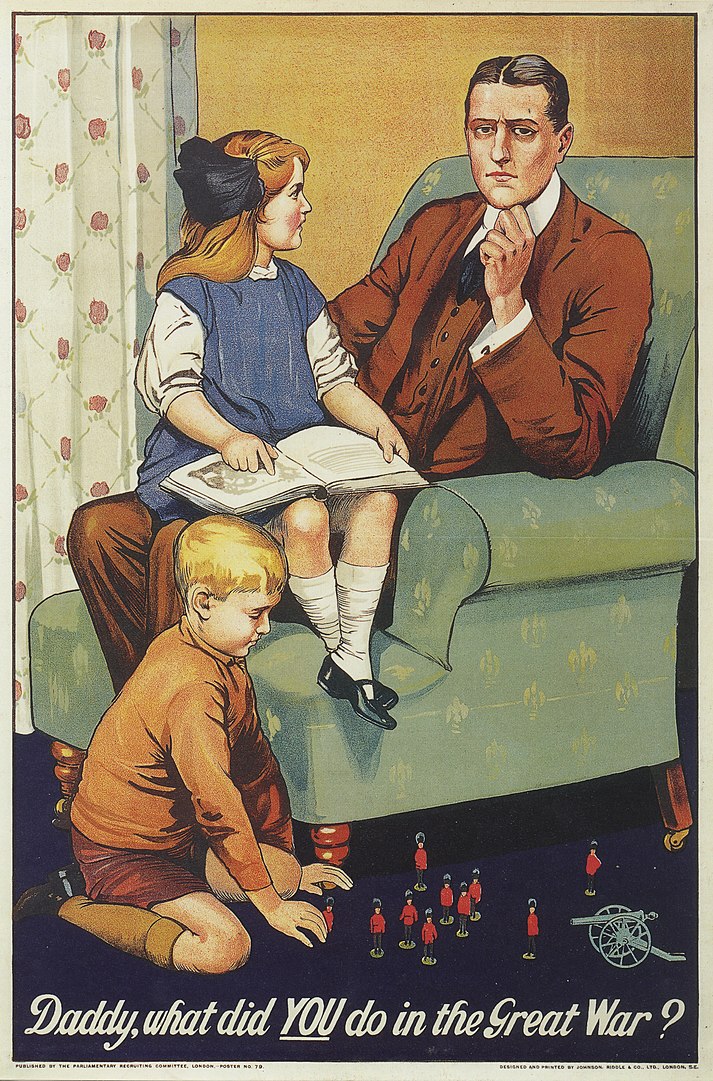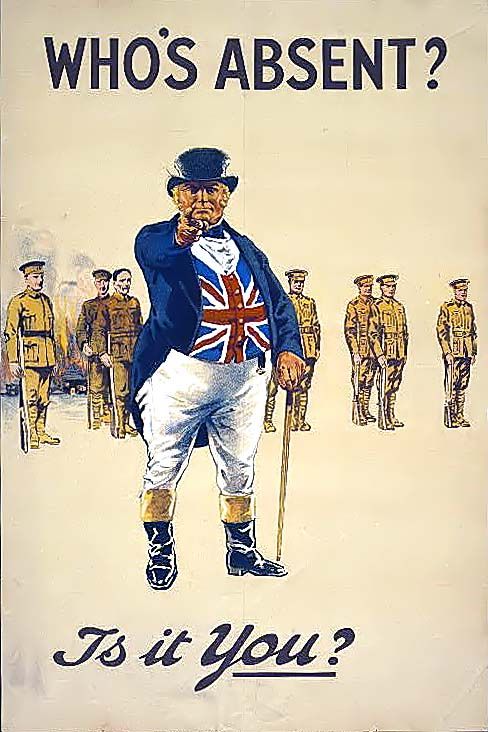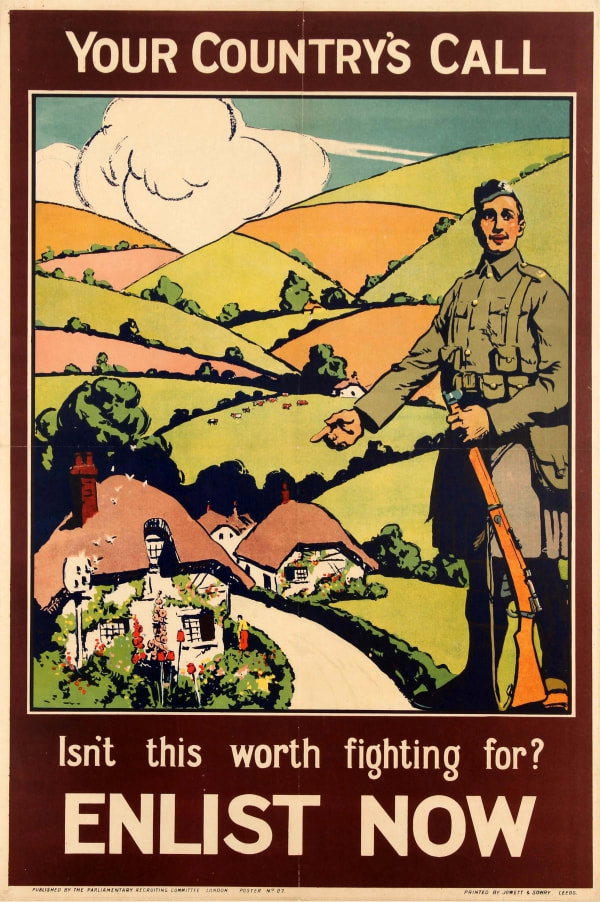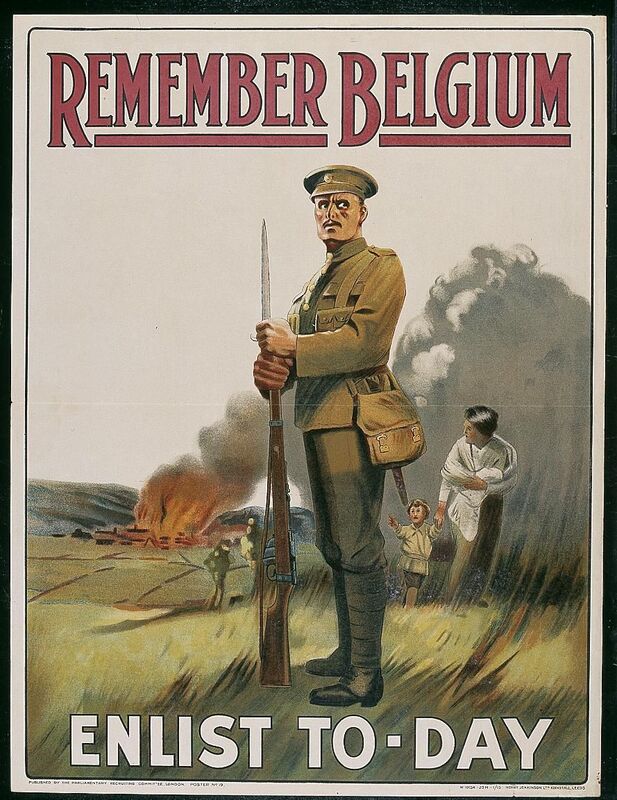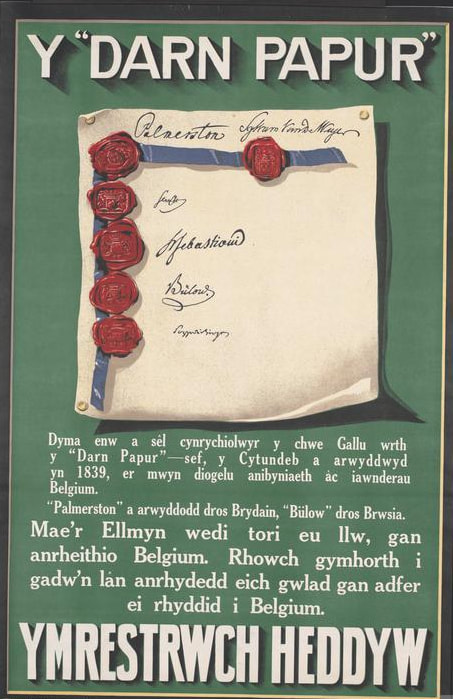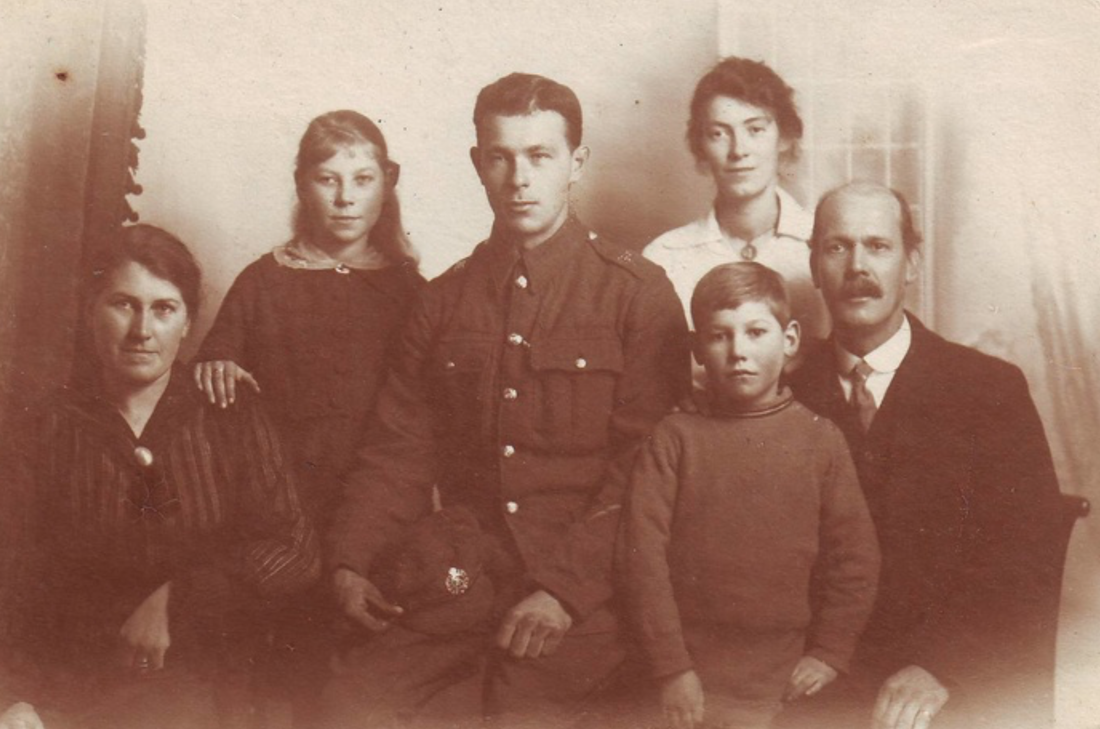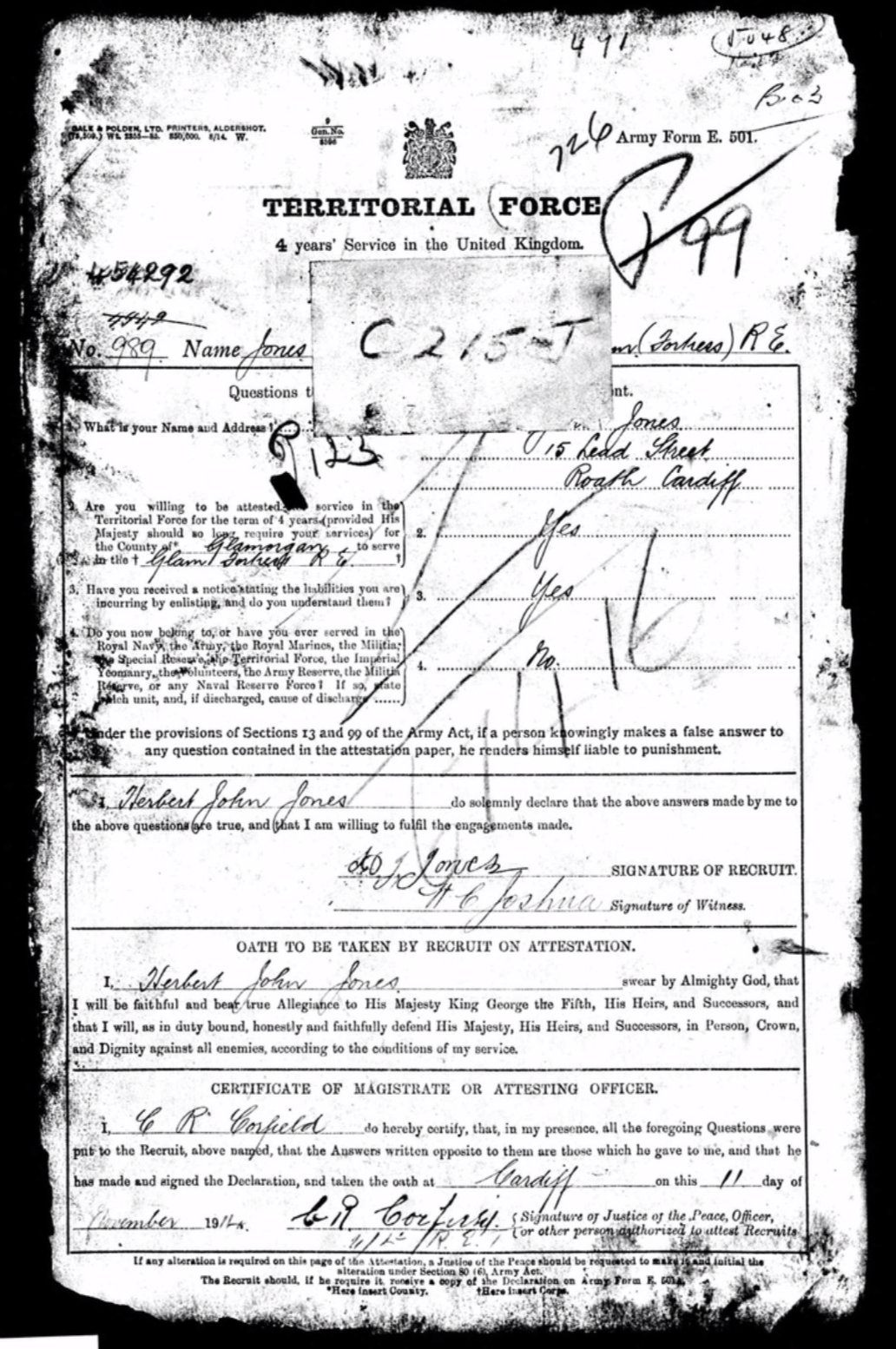Lesson 4 - The nature of the First World War - Expectations
|
One of the reasons for the ease to which Europe went to war in 1914 was because large sections of the public supported it. The militarism and nationalism which had been such powerful cultural forces before 1914 played a critical role encouraging people to view war in a positive light.
Today is going to be a very literary lesson. We begin by watching the extract from the 1930 film 'All Quiet of the Western Front', (based on the classic book) which captures the enthusiasm with which the war was greeted. Password moser.
The film has been remade twice, most recently in a first German version in 2022 available on Netflix. Both the 1930 and 2022 versions won Oscars. The book was banned in Hitler's Germany. |
|
Rupert Brooke and Helmuth von Moltke
Rupert Brooke was an English Poet, a member of the 'Georgian' group of romantic poets writing before the First World War. He wrote a number of popular patriotic poems on the outbreak of war and was famously described by Yeats at the 'the handsomest young man in England'. Helmuth von Moltke was the chief of staff of the Prussian Army for thirty years and had been responsible for the important army reforms under Bismarck. What could they possibly have in common?
Rupert Brooke was an English Poet, a member of the 'Georgian' group of romantic poets writing before the First World War. He wrote a number of popular patriotic poems on the outbreak of war and was famously described by Yeats at the 'the handsomest young man in England'. Helmuth von Moltke was the chief of staff of the Prussian Army for thirty years and had been responsible for the important army reforms under Bismarck. What could they possibly have in common?
Peace
Now, God be thanked Who has matched us with His hour,
And caught our youth, and wakened us from sleeping,
With hand made sure, clear eye, and sharpened power,
To turn, as swimmers into cleanness leaping,
Glad from a world grown old and cold and weary,
Leave the sick hearts that honour could not move,
And half-men, and their dirty songs and dreary,
And all the little emptiness of love!
Oh! we, who have known shame, we have found release there,
Where there's no ill, no grief, but sleep has mending,
Naught broken save this body, lost but breath;
Nothing to shake the laughing heart's long peace there
But only agony, and that has ending;
And the worst friend and enemy is but Death.
Rupert Brooke 1914
Activity 1 - Groups
1. (a) Why does Rupert Brooke thank God?
(b) Who are the ‘sick hearts’ and ‘half-men’
(c) How can death be a friend?
2. Helmuth von Moltke, Head of the German Army said 'War is an element of the divine order of the world. In it are developed the noblest virtues of man: courage and self denial, fidelity to duty and the spirit of sacrifice; soldiers give their lives. Without war the world would stagnate...’ Do you think Rupert Brooke would agree with him? Explain your answer carefully.
3. How useful is the poem as evidence about how people welcomed war in 1914? (OPCVL)
1. (a) Why does Rupert Brooke thank God?
(b) Who are the ‘sick hearts’ and ‘half-men’
(c) How can death be a friend?
2. Helmuth von Moltke, Head of the German Army said 'War is an element of the divine order of the world. In it are developed the noblest virtues of man: courage and self denial, fidelity to duty and the spirit of sacrifice; soldiers give their lives. Without war the world would stagnate...’ Do you think Rupert Brooke would agree with him? Explain your answer carefully.
3. How useful is the poem as evidence about how people welcomed war in 1914? (OPCVL)
Rudyard Kipling and Earl Kitchener
You probably know Rudyard Kipling as the author of the Jungle Book, although I might have mentioned him on our imperialism topic as the author of the 'White Man's Burden'. He was a short story writer and poet ('If' is many people's favourite poem and was written for his son John) and he is still is youngest ever winner of the Noble Prize for literature.
Kitchener was the most famous soldier in Britain. He made his name fighting in Africa and in 1914 he became Minister for War. What can these two possibly have in common?
You probably know Rudyard Kipling as the author of the Jungle Book, although I might have mentioned him on our imperialism topic as the author of the 'White Man's Burden'. He was a short story writer and poet ('If' is many people's favourite poem and was written for his son John) and he is still is youngest ever winner of the Noble Prize for literature.
Kitchener was the most famous soldier in Britain. He made his name fighting in Africa and in 1914 he became Minister for War. What can these two possibly have in common?
Kitchener as Minister for War was one of the few people to expect a long war. The general view based on the experience of the Franco-Prussian war was that the fighting would all be over by Christmas. Britain didn't have a big army so Kitchener set out to create one by encouraging volunteers to sign up. In 1914, Kipling was asked to help produce propaganda for the British war effort. He produced a series of articles designed to encourage young men to join Kitchener's New Army. He wrote in The New Army in Training:
'This much we can realise, even though we are so close to it, the old safe instinct saves us from triumph and exultation. But what will be the position in years to come of the young man who has deliberately elected to outcaste himself from this all-embracing brotherhood? What of his family, and, above all, what of his descendants, when the books have been closed and the last balance struck of sacrifice and sorrow in every hamlet, village, parish, suburb, city, shire, district, province, and Dominion throughout the Empire?'
'This much we can realise, even though we are so close to it, the old safe instinct saves us from triumph and exultation. But what will be the position in years to come of the young man who has deliberately elected to outcaste himself from this all-embracing brotherhood? What of his family, and, above all, what of his descendants, when the books have been closed and the last balance struck of sacrifice and sorrow in every hamlet, village, parish, suburb, city, shire, district, province, and Dominion throughout the Empire?'
Activity 2 - Groups
1. Examine each of the 10 posters. For each poster, what do you think the propagandist is attempting to achieve?
2. Read the extract from Kipling's The New Army in Training. Compare his arguments and technique with the propaganda posters you have studied. Which of the posters most resemble the arguments of Kipling? Explain your answer with careful reference to the content of the posters.
1. Examine each of the 10 posters. For each poster, what do you think the propagandist is attempting to achieve?
2. Read the extract from Kipling's The New Army in Training. Compare his arguments and technique with the propaganda posters you have studied. Which of the posters most resemble the arguments of Kipling? Explain your answer with careful reference to the content of the posters.
Herbert John Jones
Herbert Jones was born in Cardiff, Wales, UK in 1896. He was 18 years old on the outbreak of war and as you can see from his recruitment papers, he joined the army in November 1914. The photograph below shows him in his uniform with his family in 1918. He survived the war and eventually married and started a family. Herbert Jones was my paternal grandfather and he died in 1982 when I was 13 years old.
Herbert Jones was born in Cardiff, Wales, UK in 1896. He was 18 years old on the outbreak of war and as you can see from his recruitment papers, he joined the army in November 1914. The photograph below shows him in his uniform with his family in 1918. He survived the war and eventually married and started a family. Herbert Jones was my paternal grandfather and he died in 1982 when I was 13 years old.
Activity 3 - Paired activity.
This a new ambitious activity for 2024. You are writing the script for an historical movie about World War 1. An early section of the film is set before 1916 and the main character, like Herbert Jones, has decided to join the army. You are going to write and film the section of the script in which we get to understand the character's motivation and his reasons for volunteering. You will either write from the point of view of the soldier volunteer or that of his girlfriend. You are going to use two filmic techniques: inner monologue and external analepsis (flashback).
This a new ambitious activity for 2024. You are writing the script for an historical movie about World War 1. An early section of the film is set before 1916 and the main character, like Herbert Jones, has decided to join the army. You are going to write and film the section of the script in which we get to understand the character's motivation and his reasons for volunteering. You will either write from the point of view of the soldier volunteer or that of his girlfriend. You are going to use two filmic techniques: inner monologue and external analepsis (flashback).
|
The inner monologue (stream of consciousness).
It is the end of the day, and your character is reflecting on all that has happened. The scene could be shot anywhere but it needs to look as if it could be 1914. Cinematographically, this usually means subdued lighting, monochromatic, bleached or B/W film. Much of this can be achieved in post-production. But it also needs a careful selection of shots with the monologue filmed in medium close-up to close-up with perhaps an establishing shot in a wide angle to begin. You can also use a green screen. The actor’s voice we hear must not be the same as the actor we see, i.e. both of you must be involved. High quality sound recording is important to this. We hear the thoughts as speech but do not see the words spoken. This does not require any serious acting, a range of different shots of a neutral expression can work. Subtle variation through reaction shots are an option. |
|
|
External analepsis (flashback).
External analepsis is a flashback to a time before the narrative of the film has started. This is ideal for us because it allows us to compress a wide range of experiences from the day into a short time scale. The various flashbacks take us to what is seen (and heard) during the day. The various images will be used as cutaways from the shots of the character as s/he reflects. There are a range of images that might be appropriate: recruitment meetings, recruitment posters, poems read, newspapers seen, newsreels watched etc. These might be presented in a typically dreamlike fashion with liberal use of crossfades, shot transparency and, Ken Burns edits. Stock archive video footage from 1914-16 can also be used (see below). The cutaway images/videos might also be accompanied by the diegetic sound of crowds, music, songs, etc. and non-diegetic music that helps create an atmosphere. The film should be no longer than two minutes maximum. |
|
|
Other useful sources
The Imperial War Museum exhibition on recruitment and signing up.
Downloadable music from WWI (USA) and as they would have sounded in 1914. World War One recruitment posters - IWM. Rupert Brooke analysis and explanation. Images of recruitment meetings (large) |
|
|

